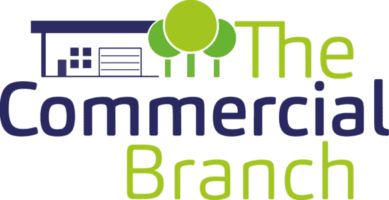Corporate Finance
What is Corporate Finance?
It is a broad term to describe how businesses fund their operations in order to maximise growth, profits, alongside other key performance indicators to ultimately increase shareholder value. Corporate Finance spans both Debt Financing and Private Equity.


Debt vs Equity
Debt vs Equity, what is right for your business?
It is key to note the difference between Debt funding and Private Equity (PE) within this space as although they are heavily intertwined and often used together on transactions, Debt funding is non-dilutive whereas PE you are selling a certain percentage of the business in return for liquidity. They also have different characteristics, the main one being debt financing is interest bearing with a set repayment profile which can limit cash flow and act as a drag on future growth compared with PE which is not.
Within the context of The Commercial Branch we are focused on how business fund their operations through Debt Financing.
Types of Debt Funding
Management Buy Outs (MBO)’s
Management Buy Outs (MBO)’s are a transaction whereby the current Shareholders are bought out by the existing management team. The key differentiator for this transaction is that new shareholders are internal colleagues within the business. Ultimate control of the business, >50% of shareholding, must change hands. Lenders like MBO’s as the buyers have direct knowledge and experience, however they often don’t have leadership skills, experience of ownership and is often a highly leveraged transaction, given the likelihood of limited personal resources
Most MBO’s arise as a result of:
- Current ownership seeking retirement, succession planning.
- Management team offer to buy from the current owner if they feel they can improve performance.
- Parent Company seeking to divest a subsidiary.
Management Buy Ins (MBI)’s
Management Buy Ins (MBI)’s are a transaction whereby the current Shareholders are bought out by an external management team. The key differentiator for this transaction is that new shareholders are external to the business. Ultimate control of the business, >50% of shareholding, must change hands. Lenders consider MBI’s higher risk as they don’t have direct knowledge, however they do often have prior business ownership skills and generally have greater liquidity to put into the transaction day one, to lower the debt leverage needed.
Most MBI’s arise as a result of:
- Purchase of company underperforming or in financial difficulties, usually out of administration
Acquisition funding
Acquisition funding is whereby the existing business buys a controlling stake (>50% of shareholding) in another trading entity
Most Acquisitions arise as a result of:
- Company purchasing a competitor or supplier to gain a market advantage
- To enable a move into a new geography
- Accelerated growth plans for market share
Growth funding
Growth funding is whereby debt is leveraged against the assets and cash flow of the existing business to provide a cash injection to grow the business. This might be for a variety of key reasons often similar in nature to acquisition funding.
Most MBI’s arise as a result of:
- Purchase of company underperforming or in financial difficulties, usually out of administration
Financing
How to finance an MBO/MBI/Acquisition or Growth:
There are a number of specialist lenders in the marketplace, outside of High Street Banks, who can finance these transactions.
Minimum Criteria:
- Debt >£1m
- EBITDA >£1m (usually across the last 3 years)
- Experienced Management team
- Clear business plan backed up by cash flow forecasts

This is actioned through a combination of leveraging the assets and future cash flow generation of the business.
Assets of the business include, but are not limited to:
- Stock
- Trade Debtors
- Intellectual Property ‘IP’
- Plant & Machinery
- Property
Cash flow generation of the business
Cash flow generation is based on the last 3 years, current and future adjusted EBITDA (Earnings before Interest, Tax, Depreciation & Amortization). Most lenders can provide debt up to 3xEBITDA, depending on need.

Security required
Unlike High Street Banks, these facilities are secured solely against a Debenture on the business, no personal properties or personal guarantees are required.
Example Transaction:
ABC Ltd’s current sole shareholder Mrs Car is looking to retire and the current management team are interested in buying 100% of the trading business.
ABC Ltd is a car dealership, trading since 1998.
Mrs Car owns the trading premise in her sole name and will be keeping this as her retirement income.
The management team have agreed a sale price of £6.2m for the trading business
ABC Ltd latest figures are:
Turnover £22.5m
Net Assets £1.2m
EBITDA £1.8m
The team want to borrow £3.1m, 50% of the Purchase Price, with the remaining 50% payable after 3 years and linked to performance targets.
After legals and Financial due diligence, Lender A was able to provide a 3 year amortizing loan of £3.1m, secured via a Debenture over the business.
The debt was secured at SONIA + 6.25%
WHATEVER YOUR SITUATION, WE’LL FIND THE SOLUTION THAT FITS
Looking to recommend a Mortgage provider to your tennants?
